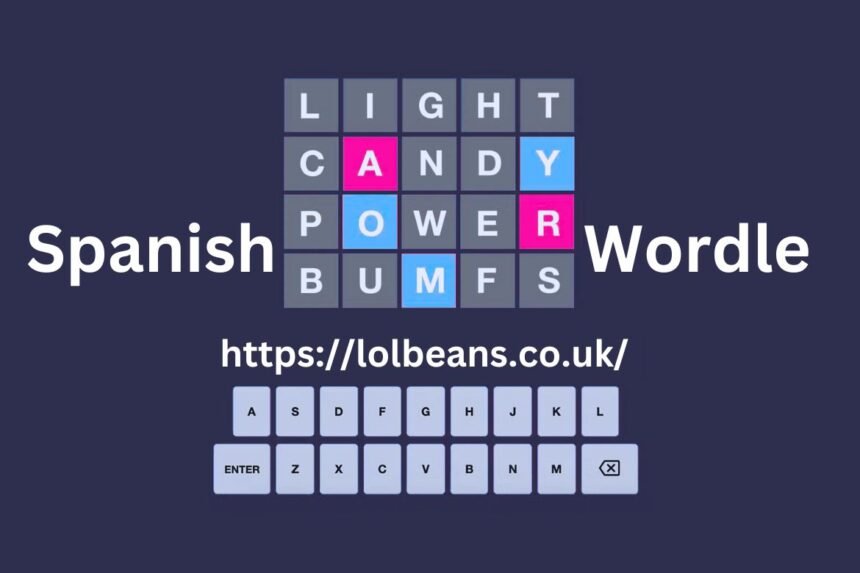Introduction
The global success of Wordle has led to numerous adaptations in different languages, including Spanish Wordle, a fantastic tool for language learners and word game enthusiasts. Spanish Wordle follows the same concept as the original but focuses on Spanish vocabulary, making it an excellent way to enhance language skills while having fun.
This article will explore Spanish Wordle, including how to play, winning strategies, why it benefits language learners and alternative Spanish word games you can try. Whether you’re a beginner or an advanced Spanish speaker, this guide will help you make the most of this engaging linguistic puzzle.
What is Spanish Wordle?
Spanish Wordle is a Spanish-language version of the popular word puzzle game Wordle, created by Josh Wardle. The Spanish variant follows the same structure:
- Players have six attempts to guess a five-letter Spanish word.
- After each guess, the game provides feedback:
- Green letters: The letter is in the correct spot.
- Yellow letters: The letter exists in the word but in the wrong position.
- Gray letters: The letter is not in the word.
- Using these hints, players must strategically adjust their guesses to find the correct word within the six attempts.
Where to Play Spanish Wordle
Spanish Wordle can be played on various websites, including wordle.danielfrg.com and wordlecat.com. Some versions include daily challenges, while others allow unlimited gameplay.
How to Play Spanish Wordle Effectively
If you’re new to Spanish Wordle, here are some step-by-step tips to improve your game and maximize your chances of winning.
- 1. Start with a Strong Opening Word
Like in the English version, choosing the right starting word is crucial. Ideally, your first word should:
- To maximize vowel discovery, contain common vowels (A, E, I, O, U).
- Use frequent consonants like R, L, S, N, and T.
Some good Spanish Wordle starting words include:
- SALTO (Jump)
- CARNE (Meat)
- PLATA (Silver)
- RIEGO (Irrigation)
These words help you test common letters early in the game.
- 2. Analyze Feedback and Adjust Your Strategy
- If a green letter appears, keep it in the same spot in the next guess.
- If a yellow letter appears, place it elsewhere.
- Avoid repeating gray letters in subsequent guesses.
- 3. Think of Spanish-Specific Letter Patterns
Spanish has some unique letter combinations and patterns that you can use to your advantage:
- The letter Ñ appears in words like NIÑO (boy) or AÑOS (years).
- Double L (LL) is standard in words like LLOVER (to rain) and LLAVE (key).
- Common endings include -AR, -ER, -IR (verbs), and -ADO, -IDO (past participles).
- 4. Avoid Overusing Rare Letters Early
Letters like K, W, and X are rare in Spanish. Avoid using them in early guesses unless the word requires them.
- 5. Use Word Patterns and Logic
If you’ve identified a few correct letters, think of words that fit the pattern rather than guessing randomly. For example, if you have:
- A_E, possible words could be PARED (wall), MAREA (tide), or TAREA (task).
Benefits of Playing Spanish Wordle
Spanish Wordle is more than just a game; it has several educational and cognitive benefits:
- 1. Improves Spanish Vocabulary
Playing Wordle daily helps you discover new words and reinforce familiar ones, making it an excellent tool for language learners.
- 2. Enhances Spelling and Word Recognition
Since Wordle requires precise spelling, it strengthens your ability to spell Spanish words correctly.
- 3. Boosts Cognitive Skills
Wordle involves logical thinking, pattern recognition, and memory, enhancing cognitive abilities.
- 4. Makes Learning Spanish Fun
Wordle adds a playful element to language learning if you’re studying Spanish, making vocabulary practice enjoyable rather than repetitive.
Alternative Spanish Word Games
If you enjoy Spanish Wordle, here are other word-based games that can help improve your Spanish:
- 1. Apalabrados (Spanish Scrabble)
A Spanish version of Scrabble where you form words on a board using letter tiles.
- 2. Sopa de Letras (Word Search)
It’s a classic word search game where you find hidden Spanish words in a grid.
- 3. Crucigramas (Crosswords)
Spanish crossword puzzles challenge your vocabulary and problem-solving skills.
- 4. Pasapalabra
Inspired by a Spanish TV show, this game involves guessing words based on definitions and letter clues.
- 5. Lingo
It’s a game similar to Wordle but with different variations and challenges.
Spanish Wordle FAQs
- 1. What Are Some Common Spanish Wordle Words?
Some commonly used words in Spanish Wordle include:
- CASA (House)
- NUBE (Cloud)
- SOLAR (Solar)
- TIEMPO (Time)
- FELIZ (Happy)
- 2. Can Beginners Play Spanish Wordle?
Absolutely! Even if you’re new to Spanish, playing Wordle can help you learn new words and improve your spelling.
- 3. Are There Different Spanish Wordle Variants?
Yes! Some versions allow longer words (6+ letters), while others provide unlimited daily plays instead of one standard puzzle.
- 4. Does Playing Spanish Wordle Help with Language Learning?
Yes! It’s fun to build vocabulary, recognize patterns, and improve spelling.
- 5. Is Spanish Wordle Available as an App?
While there’s no official app, many websites offer mobile-friendly versions for easy access.
Conclusion
Spanish Wordle is a fantastic game that combines fun, strategy, and language learning. Whether you’re a Spanish student, a bilingual speaker, or a puzzle enthusiast, it provides an enjoyable and educational way to sharpen your Spanish skills. By using innovative guessing strategies, expanding your vocabulary, and exploring other word games, you can take your Spanish proficiency to the next level.







